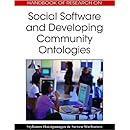Next three years of my work will be partly related with European IST 7th Framework Project IntelLEO. IntelLEO is an acronym for extended intelligent learning organization model – a hybrid knowledge-management model between two institutions.
I will be responsible of the Pedagogical tasks of IntelLEO.
In IntelLEO three business cases will be tested:
– Collaborative learning and knowledge-building strategy within large industrial enterprise (Volkswagen – Strak – the Computer Aided Styling of automobiles) and university
– Harmonising organisational objectives with learning and knowledge-buiding activities between business network (INI d.o.o.), university and customers
– Harmonisation of individual & organisational objectives within in-service teachers and university
In one of the conference talks i have already presented the model:
The objective of the project is to explore how the responsiveness of the learning and knowledge-building environments in an IntelLEO can be radically enhanced by advanced technology, exploiting, in an innovative way, a synergy between:
(a) services for efficient management of collaborative learning and knowledge-building activities and access to and supply of shared content, and
(b) services for harmonisation of individual and organisational objectives.
Three hypotheses of the research are:
The responsiveness of an IntelLEO is corporate performance in which individuals are motivated to proactively learn and construct knowledge.
This responsiveness can be increased:
– if individuals are technologically supported to participate in collaborative learning and knowledge-building activities across vertical and horizontal boundaries of the IntelLEO, and
– if their personal objectives of learning and creativity are dynamically harmonized with the organisational learning and knowledge-building objectives of different IntelLEO counterparts.
2. The effectiveness of the technological support that will be developed in the project to increase the responsiveness of an IntelLEO is achieved by the synergy of the two kinds of services mentioned above ((a) and (b)).
3. Learning and harmonisation of individual and organisational objectives happen at different temporal collaborative knowledge-building and learning groups of an IntelLEO.
Partners in IntelLEO project:
Institut fuer angewandte Systemtechnik Bremen GmbH
Volkswagen AG, Strak
Tallinn University, Centre of Educational Technology
Estonian Teachers’ Association
Zentrum fuer Soziale Innovation, Austria
ATOS Origin
University of Belgrade, Faculty of Organisational Sciences
INI d.o.o.
Athabasca University – School of Computing and Information SystemsAU CA
The launch of the project takes place in Bremen this week.









